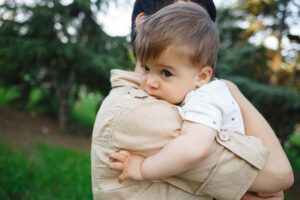
Understanding the difference between normal and abnormal behavior in children isn’t always easy.
Every child is different. Some children take longer to develop certain behaviors than others.
The easiest way to understand what normal behaviors in children are is to familiarize yourself with child development. Understanding different milestones can give you a clearer picture of where your child’s behavior should be.
Of course, what’s considered “normal” also depends on your child’s age. You wouldn’t expect the same behaviors from a teenager and a kindergartener.
With that in mind, it’s important to pay attention to some key warning signs when it comes to the unhealthy behavior of your child. The earlier you’re able to recognize some of these signs, the sooner you can take action to redirect their behavior.
And that makes it easier to work to counteract anomalous behaviors before they become bigger issues.
What Is Normal Behavior?
Again, normal behavior varies depending on your child’s age and their personal development. Let’s take a quick look at the healthy behaviors of different age groups.
- Preschool: While your child might be exercising their right to say “no,” they should have more control over their emotions at four or five years old than they did as an infant. Temper tantrums shouldn’t happen as often. When they do, they shouldn’t last as long.
- Grade school: When your child is anywhere from six to nine years old, they might have some difficulty understanding their own emotions and how to handle them. This is a crucial time for guiding your child on how to do different things to handle their feelings. Don’t worry if they sometimes feel frustrated or anxious.
- Middle school: It’s normal for children around twelve years old to feel more independent. As a result, they can start to be more argumentative with their parents. It’s important for parents not to overreact to these first signs of autonomous thinking.
- High school: Teenage children go through a lot of changes in just a few years. They feel a lot more independent but still need the guidance of their parents. They should have enough self-discipline and sense of responsibility to be able to get things done, and they also need to understand the consequences of breaking rules.
Warning Signs of Behavioral Issues
If your child doesn’t necessarily exhibit all of the normal milestones listed above, it doesn’t have to be an immediate cause for worry. Children develop emotionally at different rates. What you can focus on, instead, are some clearer signs that there might be a behavioral problem (at any age).
Some of these warning signs include:
- Emotional outbursts/difficulty handling or expressing emotions
- Trouble managing impulsive behaviors and decisions
- Aggression and misbehavior at school
- Self-harm
- Talk of suicide
- Inappropriate sexual behaviors
You know your child better than anyone else. Seeing these changes or inappropriate behaviors can be a sure warning sign that something is emotionally wrong. That’s why it’s so important to pay attention to even subtle changes in your child and the way they act and respond to certain situations.
How to Address Unhealthy Behaviors
Many times, a child’s abnormal behavior can be corrected by changing the way you discipline them. Children don’t always respond positively to the consequences parents give them. In these cases, you may need to take a different approach to receive a more acceptable response from your child.
If your child is struggling with more serious behavioral issues, they could need professional help. In fact, if your child’s behavior has started to change significantly and nothing you do is working, counseling can be your most effective strategy.
—
Please feel free to contact us if you’re not sure how to handle your child’s behavioral issues. We can work with them (and you) to focus on possible underlying causes. Then, we can help guide you on how to address the negative behaviors and get your child back on the right developmental track.





